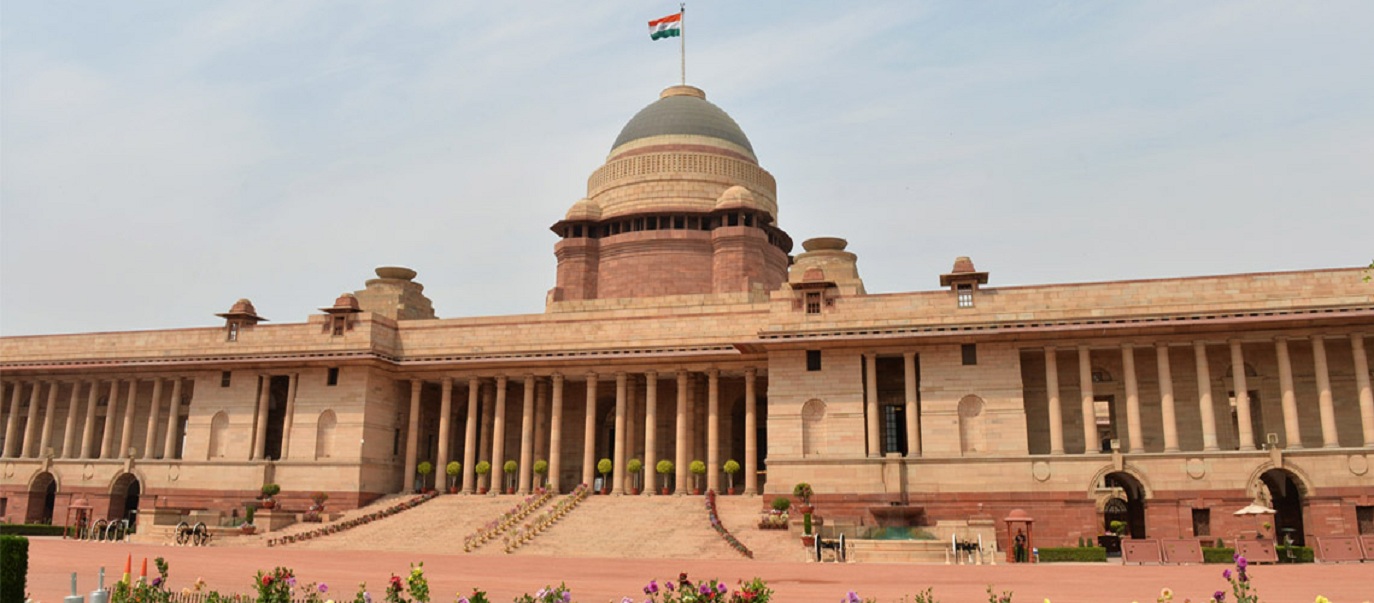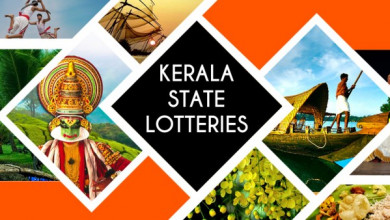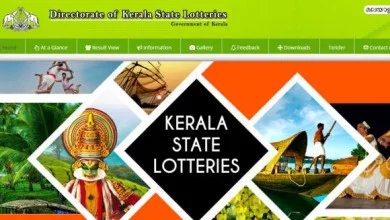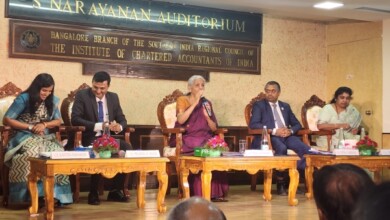Dysfunctional legislatures disrupt lives of the people and dreams of the nation, says Vice President

Calls for people’s campaign to influence conduct of 5,000 elected representatives in legislatures
Shri Venkaiah Naidu says protests in legislative chambers are in order but should not breach dignity and decorum of the House
Making farming remunerative, major shift of workforce away from agriculture, PM from weaker sections, membership in the UN Security Council, growth benefits for all should be the agenda for next 25 years, says Shri Naidu
Delivers first Pranab Mukherjee Memorial Lecture; describes former President as the ‘envy of aspiring politicians but the pride of the nation’
Says former President would have welcomed undoing of retrospective taxation
Expressing concern over the rising disruptions in the legislatures and the declining quality of the country’s parliamentary democracy, Vice President of India and Chairman of Rajya Sabha Shri M.Venkaiah Naidu today called for a people’s movement to influence the conduct of 5,000 MPs, MLAs and MLCs in the law making bodies for making a difference from the present. Terming it as ‘Mission 5000’, Shri Naidu asserted that such a campaign is necessary to save the parliamentary democracy from loosing it’s sheen and appeal.
Shri Naidu spoke at length on the consequences of disruptions and dysfunctional legislatures while delivering the first ‘Pranab Mukherjee Memorial Lecture’ on the theme ‘Constitutionalism; Guarantor of Democracy and Inclusive Growth’ organised by the ‘Pranab Mukherjee Legacy Foundation’ through video conferencing, on the occasion of the first death anniversary of the former President of India .
Referring to the over 50 years of active public life of late Shri Pranab Mukherjee and his contributions in various capacities including as the Union Minister for 21 years and his meteoric rise from being an Upper Division Clerk to becoming the President of India, Shri Naidu described the late leader as ‘the envy of every aspiring politician but the pride of the nation’.
Elaborating on the concept of ‘Constitutionalism’, Shri Naidu said it has emerged further to centuries of monarchy and aristocracy with attendant erosion of basic rights of the people and seeks to ensure governance based on a body of laws that flow from the provisions and the spirit of Constitutions, thereby preventing the arbitrariness and rule by the will and discretion of the governments.
Describing the Constitution of India as a profound statement of socio-economic objectives to be realised pursuing the path of participatory democracy, the Vice President stressed that “It is necessary to give voice to every citizen in governance which is democracy all about and to ensure the benefits of development to all, which is inclusive growth all about. Strict adherence to Constitutionalism only can ensure real democracy and inclusive growth”.
Shri Naidu noted that protests on the floor of the legislative chambers are fine as long as they don’t breach the dignity and decorum of the House. He said; “Protesting against the omissions and commissions of the governments on the floor of the legislatures is the right of the legislators. But the emotional underpinnings of such protests should not cross the limits of decency and decorum that should mark parliamentary democracy. To ensure this, I have been advocating that ‘Let the Government propose, the Opposition oppose and the House dispose”.
Stating that Constitutionalism checks arbitrariness of the governments by ensuring wider stakeholder consultations, Shri Naidu observed “Dysfunctional legislatures prevent the much desired wider consultations before making of laws and framing of policies. Such disruptions negate the principle of accountability of the executive to the legislatures, thereby promoting the tendency of arbitrariness, which Constitutionalism seeks to checkmate”.
Lamenting that ‘’Disrupted and dysfunctional legislatures can disrupt the lives of the people and the dreams of our nation’’, Shri Naidu outlined the contours of the ‘Mission 5000’ aimed at changing the behaviour of the 5000 legislators who are elected from time to time. Under this mission, Shri Naidu urged the awakened citizens to identify the disruptors and question them during their visits to respective constituencies/areas; launch Mission 5000 social media handles and post the names of disruptors along with comments; hold meetings to discuss the functioning of legislatures and their members; write letters to news dailies voicing concern over the conduct of such disruptors; send messages of concern directly to such legislators and more importantly, to take into consideration the parliamentary performance and conduct of elected representatives while voting in the next elections.
In the 75th year of the country’s Independence, Shri Naidu urged all the MPs, MLAs and MLCs across the country to resolve to not disrupt the Houses during this year. He further said; “Thereafter, I can assure them that it would become a ‘habit’ having sensed the fragrance of constructive conduct in the legislatures and the appreciation it would get from the media and the people at large”.
Speaking on the agenda for the country for the next 25 years, Shri Naidu said that inclusive developmental strategies and polity should be ensured to eliminate the remnants of poverty, illiteracy, gender discrimination and inequities. He further hoped that the country would have a Prime Minister from the weaker sections besides half a dozen women Chief Ministers.
Shri Venkaiah Naidu further stressed on the need to ensure that farming turns out to be a remunerative enterprise and farmers were freed from all kinds of exploitation. He also called for a major shift of workforce from agriculture by doubling the share of manufacturing in the GDP when free India turns 100 besides the country emerging as the preferred destination for investments and immigrants. Shri Naidu also referred to India getting it’s due place in the United Nations Security Council during this period.
Describing late Shri Pranab Mukherjee as endowed with sharp mind and phenomenal memory and a consensus builder having chaired 95 Groups of Ministers on various contentious issues, Shri Naidu said the former President would have supported the recent undoing of retrospective taxation, which was introduced by him as the Finance Minister.
Referring to the former President’s participation in a RSS training camp in Nagpur in 2018, Shri Naidu said that it was a statement of Pranab Mukherjee’s ability to rise above the usual divide in the larger interest. Recalling the former President’s definition of nationalism in Nagpur, Shri Naidu said that whoever is speaking of nationalism and patriotism, noting more is being asked for than what the former President said about it.
Shri Shekhar Dutt, former Governor of Chhattisgarh, Ms. Sharmistha Mukherjee, daughter of former President of India, Shri Pranab Mukherjee and others were present during the event.
Following is the full text of the speech:
“Dear brothers and sisters!
Time flies so fast that it is one year since one of the veterans of India’s public life and the highly respected Pranab Mukherjee left us for heavenly abode after a long and illustrious journey in the cause of nation building. I have had the honour of knowing him personally besides benefitting from his words of wisdom.
I am indeed honoured to have got the opportunity of delivering the ‘First Pranab Mukherjee Memorial Lecture’ organized by the ‘Pranab Mukherjee Legacy Foundation’, set up by his talented daughter Sharmishtha Mukherjee and other associates. I compliment Sharmishtha ji for this initiative to perpetuate the message that flows from the life and works of Pranab da for the benefit of posterity by way of inspiration.
Pranab da was among the few distinguished politicians who made invaluable and multi-faceted contribution to the march of modern India. He was a key participant for over 50 years in the 74 year journey of Independent India. He had left a mark of his own in various capacities that he served the Mother India. It was a remarkable and illustrious journey by all counts and standards. To present this journey in proper perspective, we need to briefly recall the same.
From the flicker of lamp in a remote ‘Mirati’ village in West Bengal, Pranab da travelled several miles to the dazzling chandeliers of Delhi. From an Upper Division Clerk (UDC) in the Posts and Telegraph Office, he rose to become the President of India. Pranab da earned every office he held, by the dint of his hard work and record of contributions, unlike many who get them on a platter.
Pranab da’s journey and rise was meteoric ever since he first entered the Rajya Sabha in 1969 as a Bangla Congress candidate at the age of 34 years. Subsequently, he served as Union Minister as many as 13 times since 1973 and guided the functioning of as many as ten important ministries/ departments. He was the Minister of Finance, External Affairs, Defence, Commerce, Industrial Development, Steel & Mines, Supply etc for a long period of over 21 years. He was also the Deputy Chairman of the Planning Commission. Pranab da was member of Rajya Sabha five times and twice member of Lok Sabha. He then became the first citizen of our country. Very few of our leaders got to serve our country for such a long period and in such diverse capacities. I have no hesitation in describing Pranab da, in common parlance, as the envy of every aspiring politician, but the pride of the nation.
More than the statistics about the long years of being in power, it was the contributions of Pranab da that made him unique in several ways. He deployed his sharp mind, phenomenal memory, deep understanding of our country’s diversity, history and civilizational values, and knowledge of statecraft to best use to various aspects of nation building. I have known and seen him as a path finder in troubled situations. As an immaculate observer of complex situations, Pranab da proved himself as a consensus builder and played key role in tiding over several such situations. This was borne out by the fact that he chaired as many as 95 Groups of Ministers (GoM) during his long stint in public life.
As the Finance Minister more than once, Pranab da strived to improve the finances of our country. He played an important role in our country clearing the last installment of the first ever IMF loan in early 80s. He also initiated targeting Budget Deficit besides being an early reformer as Minister of both Finance and Commerce. During his stint as Minister of External Affairs, he deftly handled our relations with Russia even while forging strong ties with the USA. India became the Full Dialogue Partner of the ASEAN during his stewardship. Known for his institution building capacity, Pranab da introduced Regional Rural Banks, set up EXIM Bank and played a key role in the setting up of the World Trade Organisation. These are only a few illustrations. He played a key role in many of the momentous decisions taken and initiatives launched during his long stint in office.
While releasing the first volume of my ‘Selected Speeches’ in February, 2019, Pranab da spoke at length on the need for inclusive and sustainable development and the concepts of ‘antyodaya’ and ‘sarvodaya’ that formed the core of our civilizational values and constituted the guiding principles of governance and administration. This vision that we shared constitute the bedrock of our Constitution. Speaking about the limitations of ‘trickle down theory of development’, Pranab da always held that the poor of our country shall find themselves as true partners in the narrative of rising India and he did his best for the same. For him, secularism and tolerance are inherent in our ethos.
Dear brothers and sisters !
Having briefly recalled the journey and philosophy of Pranab da, let us now come to the theme of today’s lecture. I appreciate Sharmishtha ji and her associates for choosing the theme of ‘Constitutionalism : The Guarantor of Democracy and Inclusive Growth’. This theme and related issues were very dear to the heart of Pranba da.
Constitutionalism is all about a country being governed by a body of laws, that flow from the provisions and the spirit and philosophy of the principal law of the land, the Constitution. This principle emerged after centuries of monarchy and aristocracy that witnessed blatant violation of the basic rights and dignities of people by the arbitrariness of governments of the day. Constitutionalism seeks to check such arbitrariness by defining the roles and responsibilities of each organ of the State with inbuilt mechanisms for defending the basic rights of the governed.
Such arbitrariness is further sought to be checked by ensuring the widest possible consultations among all sections of the people thereby checkmating the rule by the will and discretion of the governments of the day.
The makers of our Constitution preferred the parliamentary form of democracy over the stability of Presidential form to precisely ensure such wider consultation given the diversity and pluralism of our nation. Pranab da, while addressing a RSS training camp at Nagpur in 2018 noted that such a democracy is not a gift but a sacred guide.
Our Constitution is a profound statement of socio-economic objectives to be realized pursuing the path of participatory democracy and ensuring justice, liberty, equality and fraternity. It is a sacred guide that we gave to ourselves and needs to be followed in letter and spirit. It is necessary to give voice to every citizen in governance which is democracy all about and to ensure the benefits of development to all, which is inclusive growth all about. Strict adherence to constitutionalism only can ensure real democracy and inclusive growth.
This brings us to the issue of the state of Parliamentary Democracy in our country as we entered the 75th year of our hard fought Independence. The most significant achievement of our nation since freedom has been the consolidation of democracy, contrary to the prophesies of doom about our ability to survive as one nation and a democracy. Our experiments and success with periodic elections has amazed the world as many new born nations failed in their tryst with democracy.
In my view, the ‘common Indian’ has been the hero of our successful democratic project. The poor and the illiterate common Indian braved all odds to stand by the chosen instrument of parliamentary democracy for bettering their lives, by even foregoing daily wages on the day of voting. In the process, about 5,000 MPs, MLAs and MLCs are regularly elected to the Parliament and State legislatures, hoping that they would effective articulate people’s concerns and find solutions for their problems. In the present technology driven and complex globalised context, the responsibilities of law makers have increased manifold even as the main challenge of building a modern India is a work in progress.
But what is happening inside the legislatures for some years now has emerged as a major area of concern. While the legislatures are meant for deliberation on issues of wider public concern and making of effective laws for the benefit of the people and the nation, ‘disruption’ has emerged as the chief instrument of parliamentary conduct and functioning. Disrupted and dysfunctional legislatures are a subversion of the noble principle of Constitutionalism. They result in blatant violation of the core principles of democracy.
Dysfunctional legislatures prevent the much desired wider stakeholder consultations before making of laws for the country and framing of policies. Such disruptions negate the principle of accountability of the executive to the legislatures, thereby promoting the tendency of arbitrariness, which Constitutionalism seeks to checkmate.
In the 75th year of our Independence, there is an imperative need to make a concrete beginning to restore the sanctity of our legislatures. Pranab da was deeply pained by the rising trend of disruptions in our legislatures including the Parliament. He used to fervently stress on the need for upholding ‘decency, decorum and dignity’ in the legislatures. He had suggested a simple formula of ‘Debate, Discuss and Decide’ and ‘Don’t Disrupt’ for law making bodies to be effective.
Protesting against the omissions and commissions of the governments on the floor of the legislatures is the right of the legislators. But the emotional underpinnings of such protests should not cross the limits of decency and decorum that should mark parliamentary democracy. To ensure this, I have been advocating that ‘let the government propose; the opposition oppose and the House dispose’.
The sacred mandate given by the people our country and the trust imposed by them should not be betrayed by the elected representatives. The need of the hour is the behavioural change among the 5,000 law makers of the country who resort to disruptions. The mission of enhancing the dignity of our legislatures is very simple. It is ‘Mission 5,000’ for effective parliamentary democracy. If the elected MPs, MLAs and MLCs can mend their ways and conduct themselves appropriately inside the legislatures, our law making bodies would certainly look much different from what they are now. The people of our country are earnestly looking for such a qualitative turn around in the functioning of our law making bodies. They have a right to such expectation having played a key role in the consolidation of democracy. Particularly so, when Young India is impatient to fulfill their genuine aspirations.
To achieve this Mission 5000, there is an imperative need for a campaign by the people to influence the legislators to conduct themselves positively in the legislative chambers. Various elements of this campaign could be; to identify the disruptors and raise the same when such law makers visit respective constituencies and areas; to launch Mission 5000 social media handles constituency/state-wise and post the names of disruptors with comments; awakened citizens to hold meetings to discuss the functioning of respective legislatures and elected representatives; writing letters to daily newspapers voicing concern over the conduct of such legislators; sending messages of concern to disruptors and more importantly, to take into consideration the parliamentary performance and conduct of elected representatives while voting in the next elections etc. The broad objective is to convey to the erring law makers the concern of the people over their conduct in the law making bodies and the need for legislatures to be the forums for debate and discussion and not disruption. Disrupted and dysfunctional legislatures can disrupt the lives of the people and the dreams of our nation.
Pranab da once said that the Parliament is the soul of the people and the atman of the nation. If the soul of the democracy is to be safeguarded, law makers should he held accountable for their conduct both within and outside the law making bodies.
In this landmark 75th year of our Independence, I appeal to all the 5,000 legislators of our country to resolve not to disrupt the proceedings of legislatures during this year. Thereafter, I can assure them that it would become a ‘habit’ having sensed the fragrance of constructive conduct in the legislatures and the appreciation it would get from media and the people at large.
This Mission 5000 with the patrons of our parliamentary democracy keeping an eye on the functioning of our legislators and elected representatives seeking a change in attitudes and parliamentary conduct would go a long way in ensuring qualitative democracy in our country. If these 5000 elected representatives don’t change and are not made to change, our parliamentary democracy would be hollow by loosing it’s sheen and appeal and it is not good for our nation. This is the time to move towards the change.
Dear brothers and sisters !
During the last 75 years, our country has taken commendable strides in various fields. But we have miles to go before we rest in the laurels. We need to define our mission for India @100. We need to have a wish list for the 100th year of our freedom. One such broad agenda that I propose is; getting rid of the remnants of poverty and illiteracy; ensuring affordable and quality healthcare for all; good number of our academic and research institutions being among the top in the world; ending gender discrimination; enhanced and equal participation of women in workforce; employment for all the needy and eligible; substantially reducing the workforce depending on agriculture by doubling the share of manufacturing in the GDP as we make our country ‘Atmanirbhar’; ensuring farming as a remunerative enterprise and ending all kinds of exploitation of farmers; minimizing inequities through inclusive and sustainable high growth strategies; increasing the Per Capita Incomes manifold through a sustained high growth trajectory; India taking it’s due place in the United Nations Security Council; having got the first Prime Minister from the Backward Communities, to have the first PM from weaker sections and at least half a dozen women Chief Ministers as a vindication of inclusive polity ; India being the preferred destination for investments and immigrants besides becoming the leading hub of innovation. I am sure Pranab da would have been in complete agreement with this vision for India @ 100. I am confident that given the heightened intensity of our nation’s collective effort that has been set in motion in recent years for building a new India, this agenda can be accomplished. We have no option but to succeed in this mission. Hence, the next 25 years are very crucial for out nation.
For this agenda to be achieved by the 100th year of free India, effective functioning of our legislatures is very essential and the Mission 5000 that I referred to earlier assumes significance.
Dear brother and sisters !
Pranab da and I may have been of different ideological intent and approach. But, for both of us, India came first. When Pranab da became the first former President of India to address a RSS training camp at Nagpur, it was a profound statement of rising above the usual divide in the larger interest.
On the issue of nationalism, he endorsed and I quote: “Nation is defined as ‘a large group of people sharing the same culture, language or history. Nationalism is defined as ‘identification with one’s own nation.. Patriotism is defined as devotion to one’s own country”. Whoever is speaking of nationalism and patriotism, nothing more is being asked for than what Pranab da said. No wonder he was a path finder on contentious issues and settled the issue of nationalism.
The consensus builder that he was, I am sure that if alive today, Pranab da would have welcomed the recent undoing of the retrospective taxation.
Pranab da used to visit his village Mirati every year for Dussehra festival. He was an inheritor and practitioner of the best of Indian traditions and ethos.
For over 50 years, Pranab da was an intrinsic part of every challenge that our nation collectively faced. He did so even during the COVID-19 pandemic. He too tested positive as if he wanted to empathize with the suffering of fellow Indians by going through it himself. Persons like Pranab da have their own ways of connecting with the people.
I am indeed honoured to have got this opportunity of taking a peek into the life and works of Pranab da on this occasion and pay my tributes to one of the great sons of our motherland.
I thank the ‘Pranab Mukherjee Legacy Foundation’ for giving me this opportunity. I also thank all the participants for giving me a hearing. Pranab da’s life and works are a certain source of inspiration. Let us do our bit to realize the dreams of Pranab da and of all of us.
Jai Hind!”




